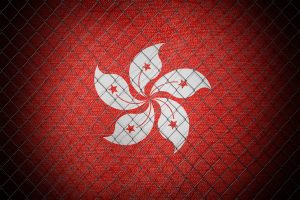Five years after China imposed the National Security Law (NSL) in Hong Kong, most of the pillars that once upheld a free and open society – namely independent media, human rights organizations, political opposition, and liberal as well as critical voices – have been dismantled one by one. Hundreds of individuals have been arrested and charged with national security offenses, many receiving long prison sentences.
Yet the local authorities remain unsatisfied with the extent of the crackdown. They are now moving to expand their control inside the prison system.
Recently, the Hong Kong government introduced new prison rules, granting broader powers to the Correctional Services Department (CSD). These rules were gazetted and enacted without public consultation. The legislature, entirely composed of so-called “patriotic” and compliant lawmakers loyal to Beijing, could only scrutinize the measure via negative vetting procedures. The government justified the move by citing urgent national security concerns, insisting it should not be delayed.
Since the NSL’s enactment in 2020, Hong Kong’s prison population has surged from around 7,000 to over 9,000 as of 2024. Many of those incarcerated were convicted for participating in the 2019 protests or for non-violent political activities that the courts reinterpreted as threats to national security. A significant number also remain in long-term pre-trial detention due to the NSL’s presumption against bail. Media reports have documented widespread use of solitary confinement and arbitrary detention. Despite repeated calls to improve prison conditions, the government is heading in the opposite direction.
The new rules target three distinct groups: prisoners, individuals in pre-trial detention, and external supporters of prisoners and detainees. Under the amendments, the CSD can now restrict visits by specific individuals or to particular prisoners on vaguely defined “national security” grounds, a vague and overbroad concept that enables the government to carry out legal repression under the guise of law.
Even more concerning, the CSD may request that prisoners open letters from their lawyers, potentially breaching legal professional privilege. It also now has the power to obtain judicial warrants preventing prisoners from receiving visits from certain lawyers, clergy, or medical professionals, thus obstructing access to essential professional supports of choice.
Additionally, the CSD may censor or withhold letters and books sent to prisoners on national security grounds. All these measures share a clear objective: to sever communication between prisoners and the outside world, making the prison environment increasingly opaque.
The amendments also worsen the treatment of individuals in pre-trial detention, treating them as if already convicted. Beyond the restrictions described above, detainees are no longer permitted to wear their own clothes or order outside meals. This contravenes the common law principle of the presumption of innocence, which holds that those on remand should not be treated as criminals. The new rules deliberately blur the distinction between convicted prisoners and those merely awaiting trial, effectively legitimizing punitive treatment before conviction – a key concern repeatedly raised by international human rights bodies. Many NSL defendants have already spent years in pre-trial detention.
The amendments also place those who support prisoners – whether by visiting, sending books, offering legal or medical aid, or sponsoring meals and clothing – on notice. The CSD can now bar such support in order to “safeguard national security,” and those offering it risk being branded threats themselves. As a result, prisoners and detainees may become even more isolated, their lifelines to the outside world effectively severed.
Perhaps most troubling is the expanded authority granted to prison officers, alongside the erosion of oversight. The previous rules clearly prohibited officers from provoking prisoners and required them, without exception, to issue a warning before firing. Both provisions have been diluted and removed. Officers may now use force without warning if they deem a warning to be “not reasonably practicable,” and the prohibition against provocation has been replaced with a vague formulation that weakens accountability. Further, officers are now granted immunity from civil liability for actions taken in the line of duty. This change effectively shields them from lawsuits and compensation claims, eroding any meaningful avenues for redress.
These measures appear targeted at political prisoners willing to challenge prison authorities – such as human rights lawyer Chow Hang Tung and activist Owen Chow Ka Sing – who have in the past leveraged the courts to assert prisoners’ rights. The combined effect of the NSL and the new prison rules will render such efforts futile, closing off formal channels for justice.
Why should the international community care? The answer lies in the broader legal trajectory. Following the enactment of a new local security law in 2024, Hong Kong has begun transplanting legal concepts from mainland China, including those concerning state secrets and national security. In mainland China, such laws have been used to jail foreign journalists and businesspeople. These developments raise serious concerns for the international business community operating in Hong Kong, which now faces heightened custodial risks.
Furthermore, many countries still maintain extradition treaties with Hong Kong. Should extraditions proceed, suspects could be subject to prison conditions lacking adequate oversight, potentially breaching international human rights norms.
These prison rule amendments are not just another technocratic tweak – they are emblematic of a broader authoritarian turn. They dismantle procedural safeguards, empower unchecked authority, and further erode the rule of law. The Hong Kong government, under the banner of national security, is accelerating efforts to silence resistance, however modest.
It is therefore vital to keep raising international awareness – especially within human rights communities and United Nations human rights treaty bodies, with which Hong Kong is still formally obliged to cooperate.

































